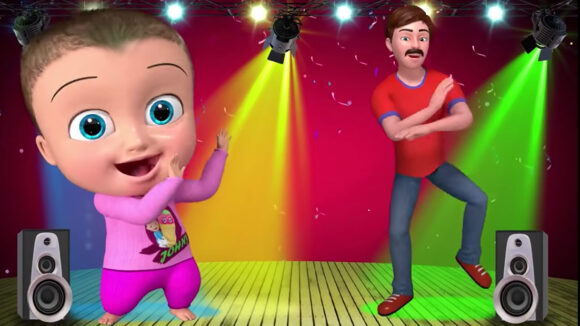

‘The Atlantic’: ‘America’s Grip On Children’s Entertainment Is Coming To An End’ Because Of Youtube
In August, we posted about how the most viewed pieces of animation on Youtube aren’t what you might expect.
Much of it is cheap looking and poorly produced animation made by no-name international companies. So, who’s running these companies? Most of the companies and their owners remain a total mystery.
That’s why this lengthy piece in The Atlantic is a must-read; in it, writer Alexis Madrigal travels to India to visit ChuChu TV, a 200-person company in Chennai that owns one of the 25 most-watched Youtube channels in the world.
The piece makes a lot of thought-provoking points about the “trash fire” of unregulated children’s content that has appeared on Youtube over the last half-decade – and it’s both inspiring and scary:
America’s grip on children’s entertainment is coming to an end. ChuChu is but the largest of a new constellation of children’s-media brands on YouTube that is spread out across the world: Little Baby Bum in London, Animaccord Studios in Moscow, Videogyan in Bangalore, Billion Surprise Toys in Dubai, TuTiTu TV in Tel Aviv, and LooLoo Kids in Iași, a Romanian town near the country’s border with Moldova. The new children’s media look nothing like what we adults would have expected. They are exuberant, cheap, weird, and multicultural. YouTube’s content for young kids—what I think of as Toddler YouTube—is a mishmash, a bricolage, a trash fire, an explosion of creativity. It’s a largely unregulated, data-driven grab for toddlers’ attention, and, as we’ve seen with the rest of social media, its ramifications may be deeper and wider than you’d initially think.
The inspiring part, of course, is that a lot of non-traditional animation companies are breaking through the U.S. corporate hegemony on children’s entertainment and finding success. The scary part is that the content produced by these companies is, by and large, lacking in creative integrity and educational value, exposing hundreds of millions of children to questionable content that could have a detrimental effect on their development.
And there’s the sinister side: an American tech corporation, Google, with no regard for the welfare of children is pulling all the strings. Google has taken the disingenuous position that children under 13 don’t watch Youtube so that it can continue to reap huge profits from its unplanned global experiment on kids. There is zero research being done on whether the unregulated content that Youtube distributes is actually beneficial to children; the entire discussion about the value of their content revolves around metrics that benefit their corporate bottomline, and to a lesser extent, the bottomline of the content producers and Youtube advertisers: video views, watch time, completion rates, and subscribers.
If you work in children’s animation, The Atlantic piece “Raised by Youtube” is an essential read. It’ll leave you with more questions than answers, but at least it’s starting a discussion, which is something that Google itself has been unwilling to do.

.png)